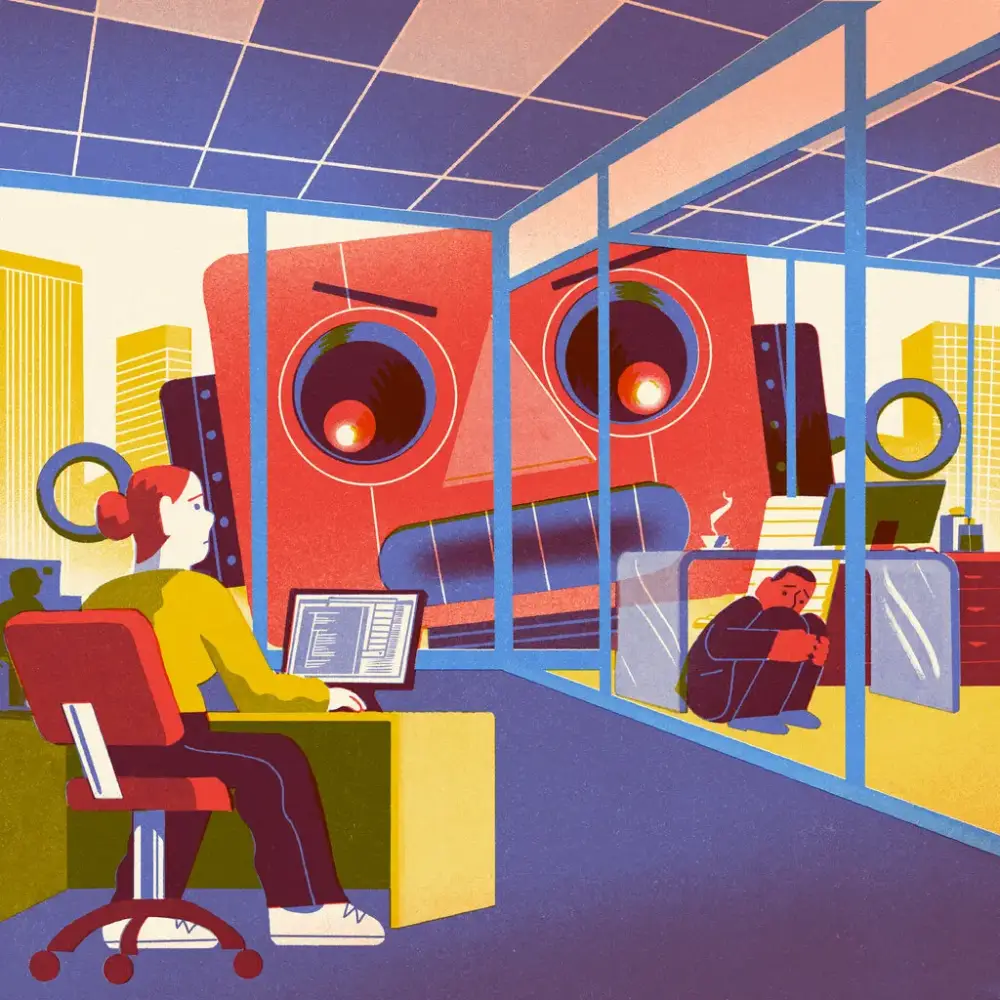
AI sẽ gây ảnh hưởng nặng nhất đến lao động trẻ hay những người có thâm niên?
-
Trí tuệ nhân tạo (AI) đang gây làn sóng lo ngại mới sau khi Amazon thông báo sẽ giảm nhân lực nhờ vào AI, và Microsoft sa thải khoảng 9.000 người (4% lực lượng) trong tháng 6/2025.
-
Câu hỏi nóng bỏng được đặt ra: AI sẽ thay thế ai nhiều hơn – người mới vào nghề hay nhân viên lâu năm?
-
Theo Dario Amodei (CEO Anthropic), AI có thể loại bỏ một nửa công việc cấp đầu trong 5 năm tới vì các nhiệm vụ đơn giản dễ tự động hóa.
-
Tỷ lệ thất nghiệp cao trong sinh viên mới ra trường đang khiến lo ngại gia tăng, dù chưa thể chứng minh AI là nguyên nhân trực tiếp.
-
Ngược lại, Brad Lightcap (COO OpenAI) lập luận rằng chính những lao động có thâm niên, quen làm việc theo quy trình cũ mới là người bị AI “đe dọa” nhiều nhất.
-
Nếu người trẻ bị ảnh hưởng, điều đó buộc hệ thống giáo dục và giá trị bằng cấp phải điều chỉnh để thích nghi.
-
Nếu người có kinh nghiệm bị thay thế, hậu quả có thể nghiêm trọng hơn về kinh tế và chính trị do mất nguồn thu thuế lớn và chi phí an sinh tăng.
-
Dữ liệu từ ADP cho thấy việc làm trong các ngành liên quan đến máy tính giảm 20-25% với người dưới 2 năm kinh nghiệm kể từ 2023, trong khi lao động có thâm niên từ 2 năm trở lên lại tăng.
-
Nghiên cứu tại Ý khi ChatGPT bị cấm tạm thời năm 2023 cho thấy năng suất lao động giảm ở nhóm lập trình viên junior, trong khi coder cấp trung lại tận dụng AI để hỗ trợ nhóm và mở rộng kỹ năng.
-
AI không chỉ giúp coder giàu kinh nghiệm tăng năng suất mà còn tăng giá trị của họ trong vai trò dẫn dắt và phối hợp, khiến công ty có xu hướng cắt giảm tuyển dụng vị trí đầu vào.
📌 AI đang tái định hình thị trường lao động: nhóm nhân viên trẻ và công việc mới vào nghề bị cắt giảm mạnh, trong khi lao động trung cấp và có kinh nghiệm tận dụng AI để tăng hiệu quả làm việc nhóm. Dữ liệu từ ADP cho thấy nhóm dưới 2 năm kinh nghiệm giảm tới 25% việc làm từ 2023, củng cố nhận định rằng AI sẽ ảnh hưởng lớn nhất đến người mới vào nghề.
https://www.nytimes.com/2025/07/07/business/ai-job-cuts.html
Which Workers Will A.I. Hurt Most: The Young or the Experienced?
Is A.I. Making Better Managers?
Thảo luận
Follow Us
Tin phổ biến



